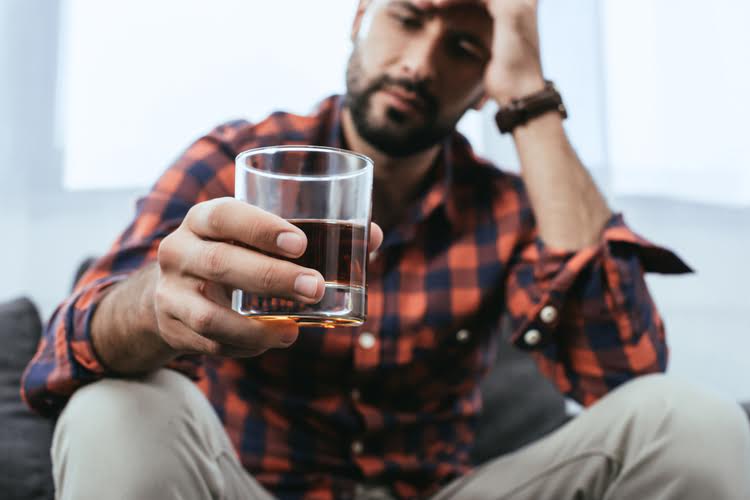Dry January, sober curiosity aren’t just for alcoholics
Sobriety means not being under the influence of a substance. However, the word is often used in different ways in different contexts. Many 12-step programs suggest that sobriety means total abstinence—never using the substance ever again.
Programs are usually around four to six hours a day for at least five days a week. Outpatient rehabs are another type of comprehensive addiction recovery treatment program. These addiction treatment programs offer many of the same types of treatments and therapies as inpatient rehabs. Rehab is a common addiction recovery treatment for sobriety. There are different types of rehab recovery programs available.
Watch: Why the Saudi crown prince met with Trump, Oprah, Bill Gates, and Jeff Bezos
It was absolutely excruciating, as if someone had sandpapered away my skin, revealing a wall of open nerves. I was experiencing feelings I hadn’t felt since I was 13, because, emotionally, I had never really grown up. It was a realisation I found embarrassing and fascinating in equal measure. It was the heart of lockdown and I wasn’t coping – or, rather, I was attempting to cope by drinking heavily. My nascent alcoholism, bobbing at a functional level since I was 14, was finally dragging me under.
- Many people with alcohol use disorder hesitate to get treatment because they don’t recognize that they have a problem.
- In Alcoholics Anonymous (AA), “dry drunk” is often used to refer to someone in the “pink cloud”.
- Sobriety is kind of like the fast-pass line at Disneyland, except the ride is growing up.
- In fact, your journey to sobriety will likely involve strengthening some relationships and purging others.
- Having a chaotic or disorganized lifestyle can also hinder your recovery.
- Keep reading to learn about steps you can take to stop drinking, take back control of your life, and how to get sober from alcohol to start the path to recovery and long-term sobriety.
Finally, if you’ve tried self-help strategies and find yourself not able to fully quit drinking, it may be time to seek professional help. There’s no one-size-fits-all approach to stopping alcohol use and treating alcohol misuse, but no matter how severe the issue may seem, recovery is possible for every person. Or it could be that you’ve developed a physical health problem that you know is probably due to drinking and you want to make positive changes before things get worse.
What is The Definition of Emotional Sobriety?
Alcoholism resources and more information on the topic of high-functioning alcoholics are available here. Someone with AUD typically doesn’t want anyone to know the level of their alcohol consumption because if someone found out the full extent of the problem, they might try to help. You do not have to put up with unacceptable behavior in your life.

The term alcoholic refers to a person with a condition known as alcohol use disorder (AUD). The disorder makes a person who has it experience an intense desire for alcohol even when it adversely affects their health. However, referring to a person with this condition as an alcoholic has negative connotations that can be harmful and hurtful. While many people may use the term “alcoholic” to describe sober alcoholic someone who has an alcohol addiction, the term is offensive and outdated. It’s more appropriate to say “a person with alcohol use disorder” or “substance use disorder.” Following a description of the term “alcoholic,” this article will use the more appropriate terminology. In the early days, I felt that it was my responsibility to answer the question, “How come you aren’t drinking?
Are You Dealing With Dry Drunk Syndrome?
There are many tall tales and secret recipes out there that claim to have solved this problem. Call 24/7 to have a discussion with one of our treatment professionals the call is completely free. Admission Line and explanation of convenient private phone and free prescreening. If in doubt, be that person, say those words, and act from a place of love and compassion. Emotional sobriety can be described as closely linked to serenity. This is an inner peace that many people claim they find in sobriety.

These individuals may be staying away from alcohol, but they are not treating the underlying issues that had either led to their drinking in the first place or developed as their alcoholism progressed. There may be very little you can do to help someone with AUD until they are ready to get help, but you can stop letting someone’s drinking problem dominate your thoughts and your life. It’s OK to make choices that are good for your own physical and mental health. According to Larson, severe alcoholic hepatitis could be fatal in 30 days in half of the patients who develop this condition. She said that patients who survive and make an effort to avoid alcohol can still improve liver function, even though the healing could take months. Developing a structured routine can help you stick to your sobriety goals, make healthy decisions, and reduce the likelihood of triggers and relapse.
Shame is having negative beliefs about yourself and your self-worth. Guilt is having negative feelings about your past behavior. People in recovery can experience a lot of shame simply for having become addicted in the first place. A mental health professional can help you cope with some of the challenges you’ll face on your path to sobriety. If PAWS is severe or if you’re experiencing prolonged symptoms, a medical professional can help you work through them and remain in recovery without relapse.
- These individuals may be staying away from alcohol, but they are not treating the underlying issues that had either led to their drinking in the first place or developed as their alcoholism progressed.
- For example, a Veteran with post-traumatic stress disorder (PTSD) who misuses cocaine, doesn’t have the same needs as a stay-at-home mom struggling with alcohol use.
- Early sobriety may come with feelings of fatigue, anxiety, or depression.
- Loving an alcoholic can be one of the most challenging and trying of relationship situations.
- It brought me up short – initially in a thorny and resentful way, later with expansive gratitude.
Remember to care for yourself, seek supportive relationships, and consider seeking help from a therapist. Research shows that if you maintain these types of toxic relationships, your chances of relapsing are greater. To avoid relapse and remain sober, it’s important to develop healthy relationships.
It was only when librarians across the US voted it among their Top 10 reads for this month that I breathed a sigh of relief that I didn’t realise I had been holding. Perhaps it was possible I could write without using alcohol. By the time my stay drew to a close, I felt like Sleeping Beauty, awaking from a 100-year slumber. I started to remember fragments that I had forgotten; I didn’t know what was real and what wasn’t.

